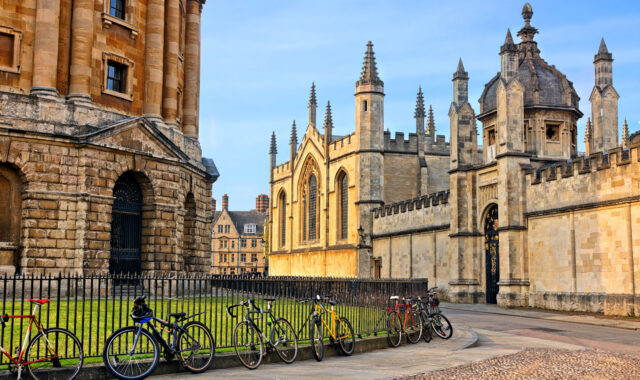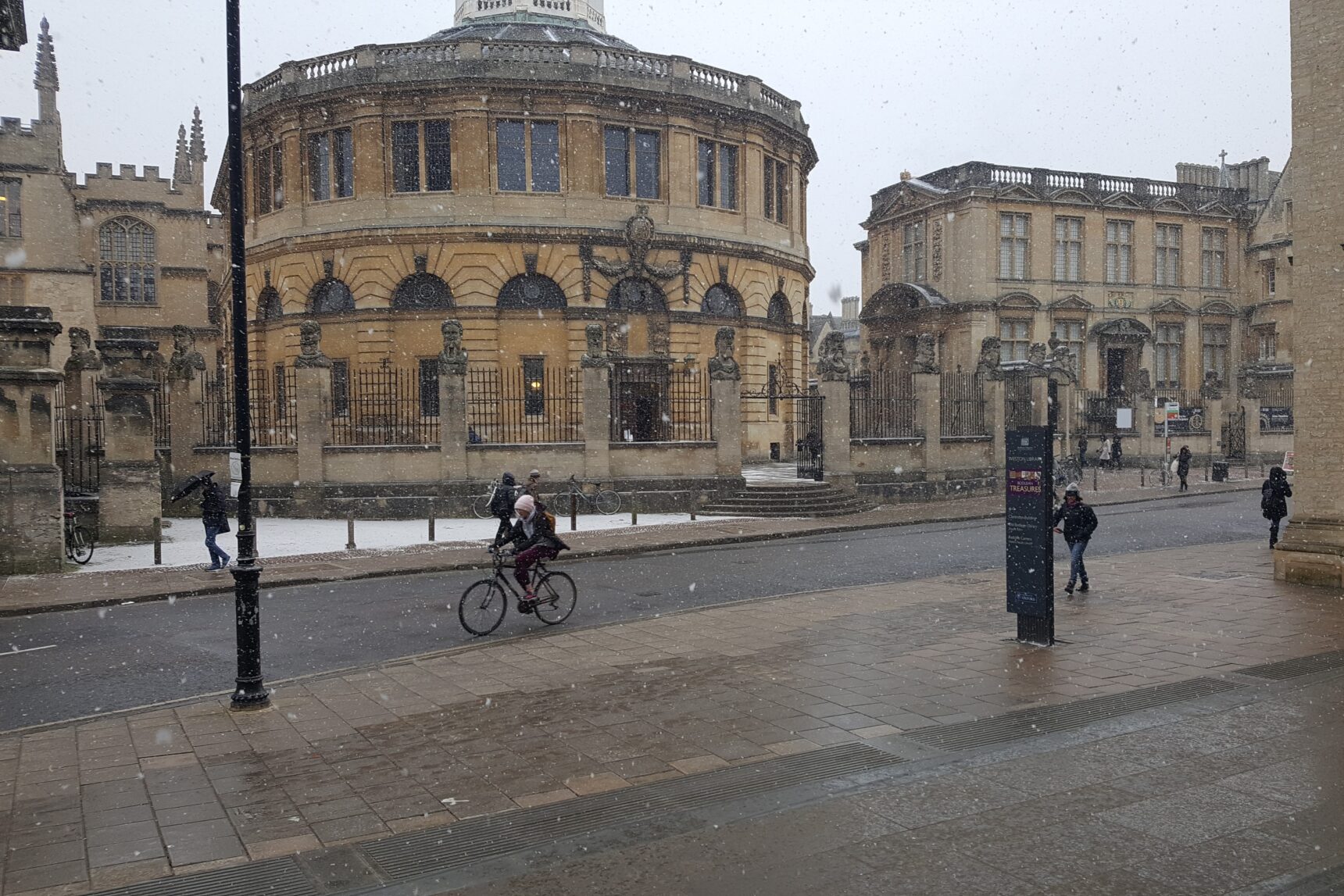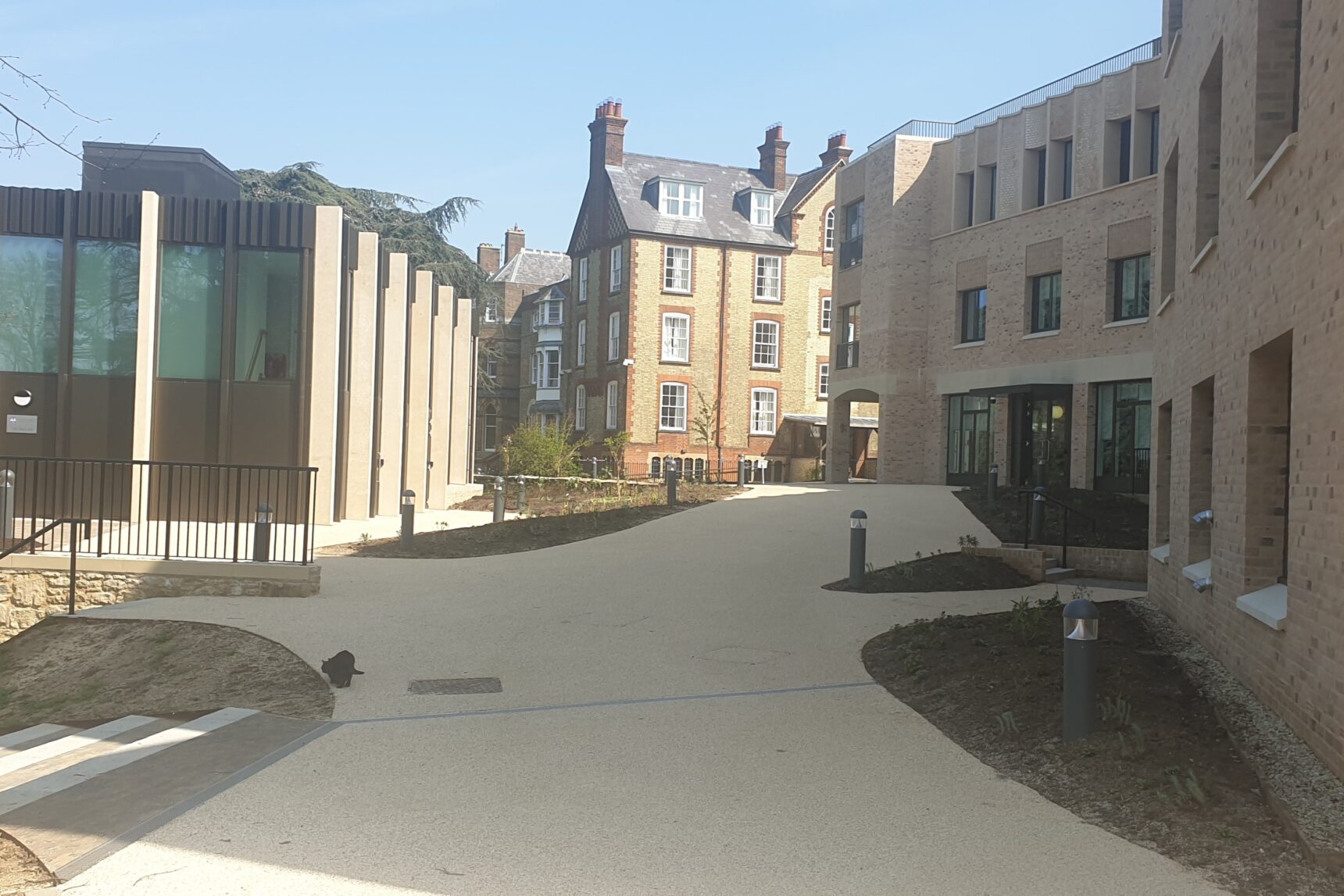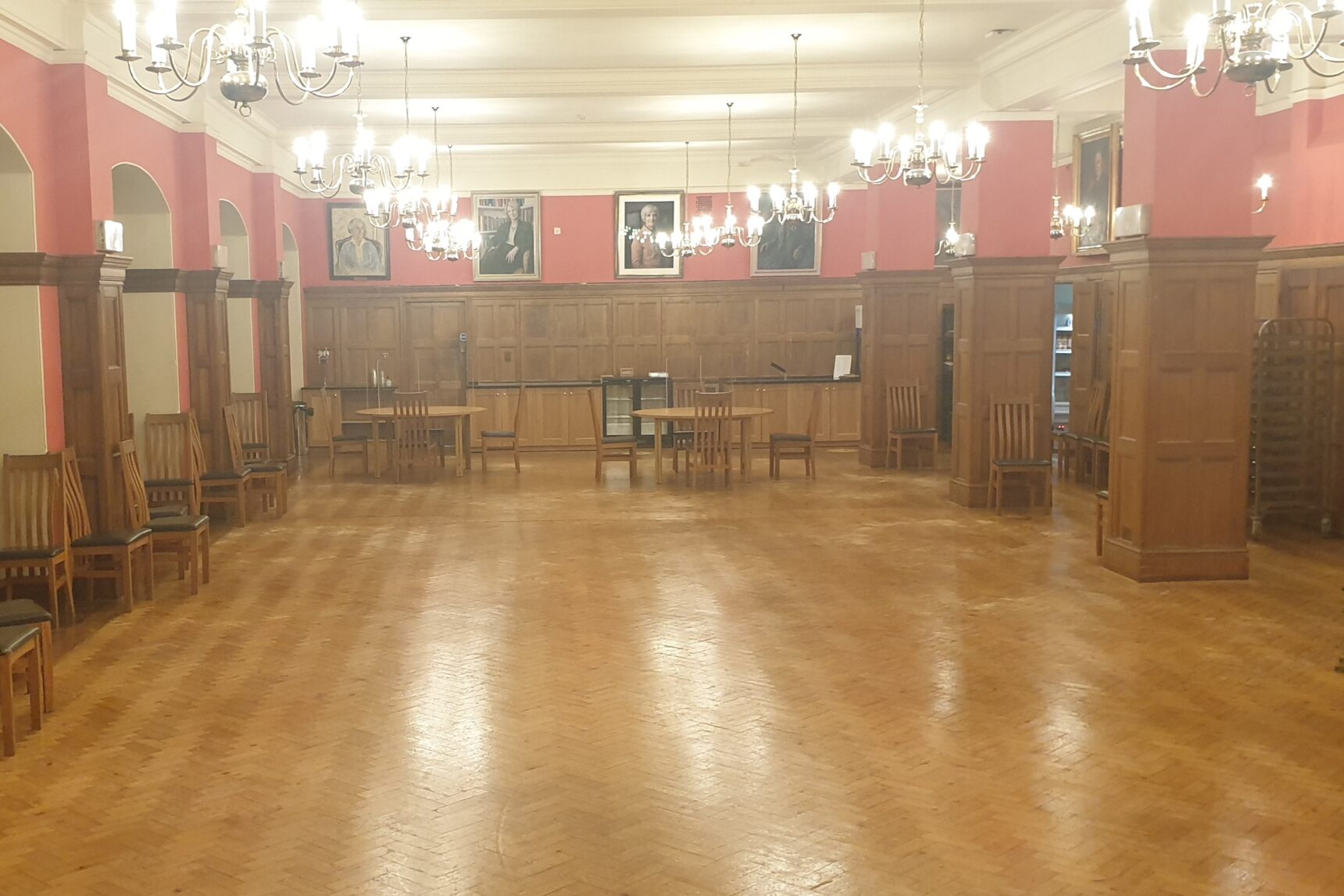Contents:
Have you considered applying to Oxbridge?
“It’s not worth applying. I’ll never get in.”
This is an exchange that I have heard far too frequently.
Perhaps you, too, have bought into the misconception that Oxbridge is an exclusive realm reserved only for the elite – those with impeccable academic records, an endless list of achievements, and a packed extracurricular schedule. You might have heard that the interviews are designed to break students into tears or that even if you manage to navigate the minefields of the admissions process, you still wouldn’t fit in.
As a tutor and Oxbridge graduate myself, I’ve encountered many myths echoed by both students and parents alike. While it’s true that Oxbridge has a reputation for being prestigious and highly competitive, the idea that it is entirely out of reach for most students isn’t the full picture. The aim of this article is to provide valuable guidance to prospective students and shed light on some of these misconceptions, encouraging a more diverse range of applicants to consider these esteemed institutions.
Misconception #1: Few Oxbridge students are from state schools
It’s a common belief that Oxbridge is mainly filled with students from private schools. While it’s true that private schools have historically had a significant presence at Oxbridge, recent statistics tell a different story.
In 2023, 67.6% of undergraduate students admitted to Oxford came from state schools. This is an increase in 5.3% from 2019, showcasing a positive shift towards a more inclusive admissions process. State school students represented 72.6% of successful UK applicants to Cambridge. Stories of state schools achieving more Oxbridge offers than private schools have become increasingly common and are championed in the media.
Beyond state school representation, diversity at Oxbridge has been improving in other areas as well. For example, the proportion of UK students identifying as Black and Minority Ethnic (BME) admitted to Oxford rose to 28.8% in 2023, and those from socio-economically disadvantaged areas increased to 14.4%.

Stereotypes about certain colleges being ‘posh’ – such as St John’s at Cambridge and Christ Church at Oxford – still persist, but the reality is that the student body itself is a hugely diverse mix. This diversity is reflected in the wide range of societies, social groups, and quirky traditions that challenge the outdated image of Oxbridge. For example, the decorous atmosphere of a gown-required dinner can be upended by silly traditions like a ‘no hands dessert’ challenge (I didn’t participate).
However, it’s important to acknowledge that there is still work to be done. Although the approximate 30% representation of private school students at Oxbridge may not seem high at first glance, it is significant considering only about 6% of UK students attend private schools. Although progress has been made, further efforts to diversify the student body are certainly necessary.
Misconception #2: Oxbridge is expensive
Many people believe that attending Oxbridge comes with a hefty price tag, making it accessible only to those from wealthy backgrounds.
It’s important to note that tuition fees for UK students are the same as at other universities, meaning Oxbridge is not more expensive in terms of course costs.
While it’s true that university education can be costly, Oxbridge has made significant efforts to ensure that financial barriers do not prevent talented students from applying.
Both Oxford and Cambridge provide financial assistance in the form of bursaries and scholarships to help students from lower-income families. In some cases, you will be automatically notified about your eligibility once you have been accepted onto a course. For example, Oxford offers the Oxford Bursary and Crankstart Scholarship, providing non-repayable financial support to UK students from households with an income below a certain threshold. Similarly, Cambridge has the Cambridge Bursary Scheme, which provides up to £3,500 per year to eligible students. These initiatives are designed to alleviate living costs, allowing students to focus on their studies without the added pressure of financial concerns. Additionally, many colleges provide extra support through travel grants, hardship funds, and free or heavily subsidised accommodation and meals.

Another factor that helps reduce costs is the shorter term length at Oxbridge. The academic year is divided into three terms, each lasting around eight weeks, with some colleges asking students to move in and out at the start and end of each term. While this has the disadvantage of lots of packing, it can be an advantage in that you are at home more during the year, which can keep expenses lower.
Top tip!
Alongside generic student discounts, several businesses and organisations in Oxford and Cambridge have specific discounts if you show them your student card, colloquially called Bod Cards and UCAM Cards for Oxford and Cambridge, respectively. This is especially useful when purchasing books!
Misconception #3: You need A*A*A* at A Level, 12 grade 9s at GCSE, and a host of extra-curricular activities
This misconception, often perpetuated by school university advisors, has deterred potential applicants (including myself!) from believing they are ‘good enough’ for Oxbridge. There is a common belief that only students with perfect academic scores and an array of impressive extracurricular achievements will be competitive in their applications. Unfortunately, in some cases, this myth is exacerbated by schools’ concerns over their success ratios and rankings.
From my own experience, I was discouraged from applying to Oxford by my school’s university advisor due to my lower-than-average GCSE grades, which were scrutinised against a spreadsheet of past applicants’ data. To the surprise of my school, I was invited to interview while some of my more ‘competitive’ peers were not. Had I listened to the advice and not given an application a shot, I would never have completed a Master’s degree at Oxford. This experience is a powerful testament that statistical analysis and initial guidance do not capture the full circumstances surrounding the application of a candidate or their character.
Whilst Oxford and Cambridge do, of course, consider your academic performance, including GCSEs and AS results, these are merely a starting point. Both universities also take personal circumstances into account. Many courses at Oxbridge also have their own admissions tests (for example, the Oxford PAT), which are often better indicators of a student’s knowledge and skills. Keeping these tests in-house provides a more uniform basis for comparison. It’s important to note that some of these exams are notoriously challenging, so don’t be discouraged if you achieve a low score.

Cambridge, in particular, adopts a more holistic approach, where GCSEs and A Levels have even less of an impact on your application. They tend to interview a greater proportion of candidates (around 80%) and use a combination of interview performance and other criteria to make their final decisions. A student who has achieved top grades at a high performing private school through rote learning may indeed be quite knowledgeable, but they may struggle with the unseen, lateral-thinking questions often presented at Oxbridge.
Admissions tutors actively consider the disparities in educational experiences among students. Students from disadvantaged backgrounds, such as those who attended schools with limited funding or resources, those eligible for free school meals, first-generation university applicants, and students from minority backgrounds, may receive a boost in ranking to account for these challenges and ensure a fairer evaluation of their potential.
Extracurricular activities, while warranting a mention in personal statements, should be only that: a mention. Non-academic pursuits make students more well-rounded, but they are not as relevant to Oxbridge tutors and do not significantly impact the competitiveness of an application. Tutors are more interested in academic engagement outside of school, such as reading around your subject, attending lectures, volunteering, or gaining practical experience in your chosen field, rather than achievements like being head boy or leading a sports team to victory.
Misconception #4: Oxbridge interviews are meant to break students down to tears
The rumours go that if you think your Oxbridge interview went well, it actually went badly, and if it went badly, to the point of tears, it was somehow a success. This is total nonsense.
Oxford interviews are now conducted online, and with Cambridge, it depends on the college. However, the core contents and intent of the interview remain the same. Online interviews can arguably be less stressful since you don’t have to stay at an Oxbridge college away from home and compare yourself to the direct competition.
Normally, you have around two interviews from two different colleges. The interview often begins with pre-interview reading or questions you’re asked to attempt beforehand. Give them a go and don’t be disheartened if you don’t finish. The difficulty of the questions intentionally ranges from AS Level to first-year university material. This allows tutors to assess your critical thinking skills rather than just your rote learning. They want to see how you think and how you would engage in a tutorial setting if admitted. Many students, myself included, have left interviews feeling like they went terribly because the questions were so challenging. After all, you’ll be questioned by experts in your field who can quickly spot when you’re trying to bluff your way through an answer. One friend of mine confidently – and incorrectly – explained the structure of graphene to the Nobel Laureate who discovered it!

Bright students may sail through the initial questions, only to find themselves stuck when the difficulty ramps up. This is deliberate and reflects the step up from A Levels to university learning, which can be quite steep at Oxbridge. The interview’s emphasis on self-learning necessitates a demonstration of strong critical thinking skills and the application of knowledge to unseen material.
Interview top tips
Although I can’t help make the process less nerve-racking for you, I can share my 3 top tips in preparing for the interviews, which are as follows:
- Take your time to think through your answers, and then verbalise your thought process loudly and clearly to showcase your analytical skills.
- Research your potential interviewers and their areas of expertise as it often correlates with their line of questioning.
- Smile and be friendly! Remember, tutors are not just assessing your knowledge but also considering what it would be like to teach you. And don’t worry – they don’t bite…much.
Overall, these are just four of the many misconceptions that deter academically-capable students from applying to Oxbridge. Remember, you have up to five UCAS choices. If you are on the fence about applying, I ask you one question:
If you feel you can do it, what do you have to lose by applying to Oxbridge?
About the article
This article draws on my experiences as an Interview Runner, where I assisted prospective candidates at my college by providing pre-read materials and speaking with them after their interviews. Additionally, as the elected Student Representative for my course during my final year, I participated in departmental meetings where we discussed and evaluated the structure of examinations, admissions, student wellbeing, and feedback. In conjunction with my own personal journey in applying to Oxford and supporting A Level students in interview workshops and through tutoring, these experiences have provided me with a comprehensive overview of the application process and many of the prevalent misconceptions.














Comments